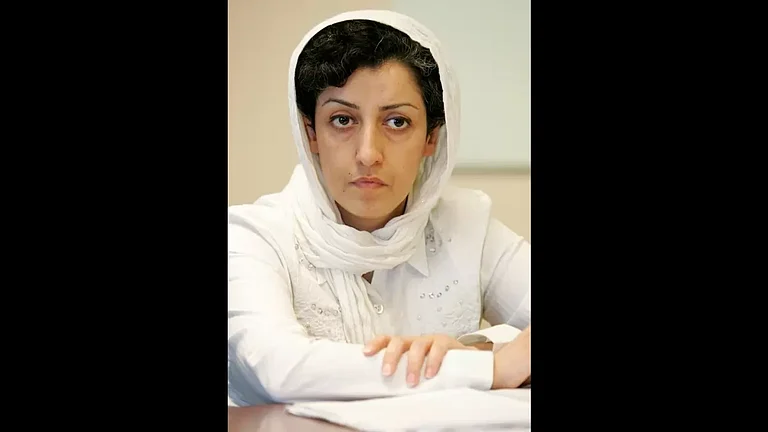That’s slightly more than what the king himself promised when he issued his proclamation sacking Deuba late Friday night, on October 4. For the first time since his father dismissed the B.P. Koirala government in 1960, ushering in 30 years of absolute monarchy, King Gyanendra Bir Bikram Shah Dev said he would "exercise the executive powers of the Kingdom of Nepal until such arrangements (to hold elections) were in place. We ourselves undertake the responsibility of governance in the country."
Within hours, ministers in the outgoing administration were told to clean out their desks and turn in the government car keys. All public property was to be returned. "They don’t have to be so gleeful about it," complained one ex-Deuba cabinet minister, referring to the civil servants who used to obey his orders, but were now stopping just short of searching his home for fax machines and government stationery.
In his statement, the king called upon Nepal’s political parties to assist him in his efforts to form a new government. He gave them five days to send nominees for ministries who had "clean images and...will not be participating in elections". The parties—widely blamed by the people for the dismal state of the country—were promised that there would be no compromise on the principles of constitutional monarchy or multi-party democracy; in short, the system that today’s party leaders had fought for during the Jana Andolan of 1990.
But neither the king nor his officials were prepared for the increasingly stubborn stance of the Nepalese political parties which perhaps gradually sensed that they might recover some of their lost credibility by launching a sort of ‘Jana Andolan Two’. Initially declaring they were "shocked" or "stunned", they didn’t take long to agree that the king’s moves were "unconstitutional" and demanded a role in the next government on their terms, not Gyanendra’s.
All week, the king and the parties shadowboxed as the nation held its breath. There were several all-party meetings—excluding the discredited and bitter Deuba—that called for a joint audience at Narayanhiti palace where all the leaders could tell the king just how much they agreed with each other. Not only did the king ignore their request, he also underlined his refusal to meet them by flying off on Wednesday, October 9, to his family’s ancestral home in the central hill town of Gorkha, leaving the political leaders hanging in front of a bemused media.
Despite the seeming stand-off, there is some suggestion that politicians might just extend at least subtle cooperation to the next government after the Hindu festival of Dashain ends next Friday. "Look," said one of the most prominent leaders, speaking privately, "we have to get our people in the next ministry, or democracy is doomed. Look at Musharraf in Pakistan; people get a taste for power, and they keep it."
Most foreign powers represented in Kathmandu are cautiously supporting the king, urging political parties to cooperate in the name of democracy. India offered de facto recognition of the situation but urged a prompt return to the parliamentary system and constitutional monarchy. A senior envoy from Delhi—former ambassador in Kathmandu and South Block eminence grise, M.K. Rasgotra—was consulted by King Gyanendra during a visit several days before the sacking of Deuba. In the final hours before making his move, the king also met American ambassador Michael Malinowski, the Chinese envoy and representatives of the European Union countries. It’s clear he was gauging the reaction of Nepal’s aid donors and neighbours, who had, in any event, long been talking about the likelihood of a royal takeover as Nepal’s Maoist situation and economy kept going from bad to worse.
"An unfortunate necessity," was how one European diplomat referred to Gyanendra’s move. British foreign office minister Mike O’Brien, on an already scheduled visit to Nepal, called for any solution to uphold the Constitution and return the country to badly-needed normality as soon as possible. The much-loved foreign solution for failing states—a government of technocrats, known in South Asia as "the Moin Qureishi (of Pakistan) option"—is certainly on the anvil, although foreign countries would like a degree of political legitimacy in the form of ministers from the main parties. Asked if aid donors would continue to cooperate with a Nepalese government without overt political support, diplomats spoke of realpolitik and the need to help the poor. For now, it’s obvious that ordinary Nepalis support the king, however much some of them still suspect him—unreasonably—of coming to the throne after organising the massacre of his brother King Birendra and nine other royals in June of 2001.
Yet, it’s hard to avoid the conclusion that this is just another Kathmandu intrigue in a country where most of its citizens live in impoverished, violence-wracked rural areas that see little of the fruits of development work based in the capital. Now, with Maoist rebels on the rampage over more than half of Nepal’s land area, the sense of crisis and collapse is acute. That’s thought to be the real reason behind Gyanendra’s sacking Deuba. Insiders indeed say that Gyanendra was more concerned with the precipitous decline in Nepal’s prospects on Deuba’s watch and had been planning his move against him for months.
Undoubtedly, the happiest in Nepal are the Maoists who rarely miss the chance to denounce the monarchy. The rebels have fought the Royal Nepal Army more or less to a standstill, using terrain, savagery and rural alienation to their advantage. "Deuba never left Kathmandu, except to travel abroad," says a former general, who is close to the King, "and the solution to all our problems is out there in the countryside, development, jobs and engaging the Maoists both politically and militarily."
Maoist leader Comrade Prachanda described the king’s decision to sack Deuba as a "power grab, a final assault on the rights of the people granted reluctantly after the 1990 Jana Andolan". He called for other political parties to join an anti-monarchy movement. Interestingly though, aside from a small attack on a hydroelectric power plant east of Kathmandu, the Maoists have yet to underscore their feelings with violence on any scale. Some feel this is because they are letting the political mood turn even uglier in Kathmandu; others hope that the rebels may be truly ready to hold talks with a new government, depending on what form it takes.
Nepal’s latest political convulsion has deepened uncertainty about the kingdom’s future. However much ordinary Nepalis cautiously supported the king’s sacking of Deuba, the failure to fill the subsequent vacuum quickly enough is deeply worrying. And the whole situation could have a sting in the tail for King Gyanendra, however good his intentions. Warns a veteran political scientist, "The danger when a constitutional monarch assumes power is that the institution of monarchy is blamed, and quickly, for insoluble problems that used to be the concern of politicians. The king should be very careful that this doesn’t happen."

























